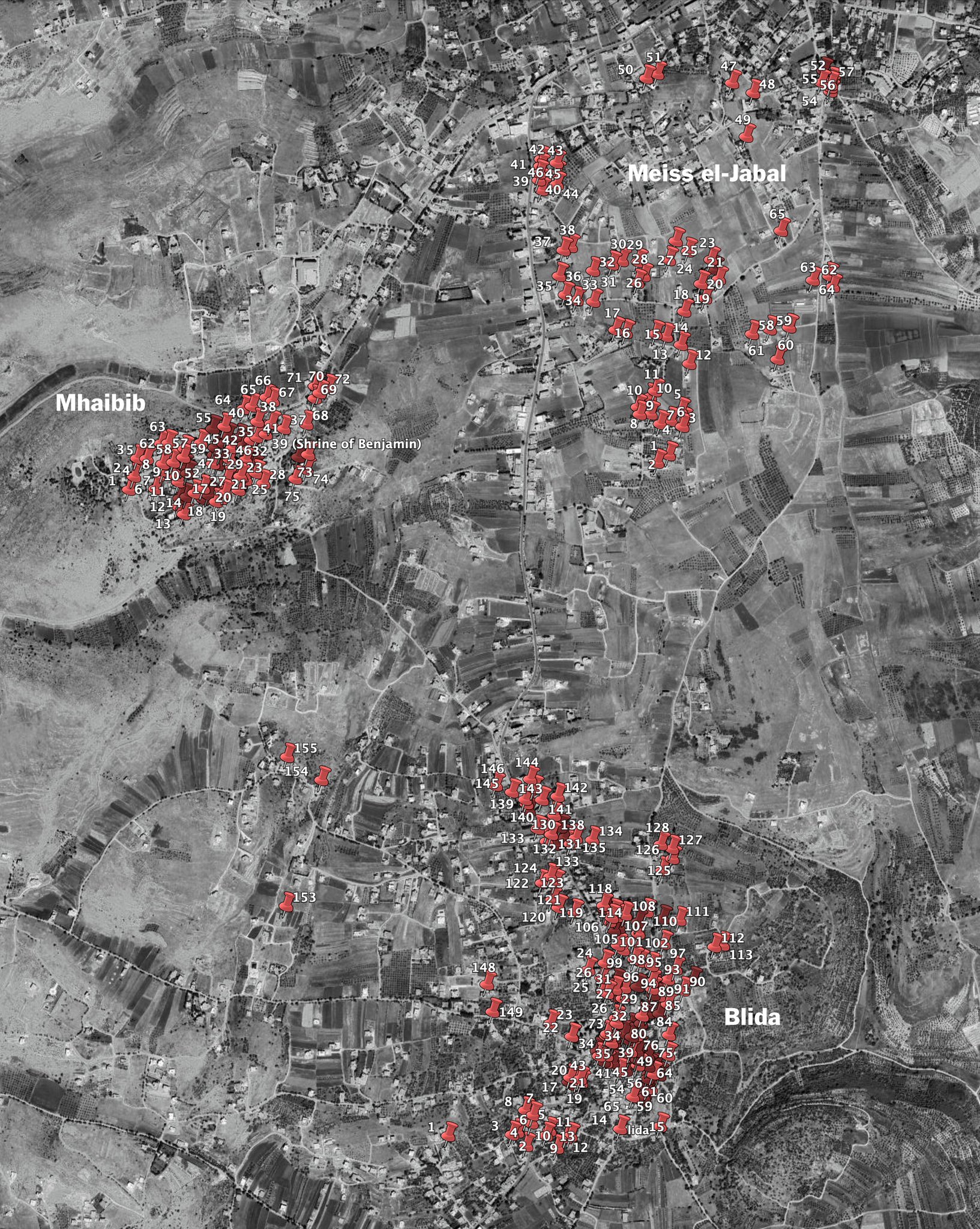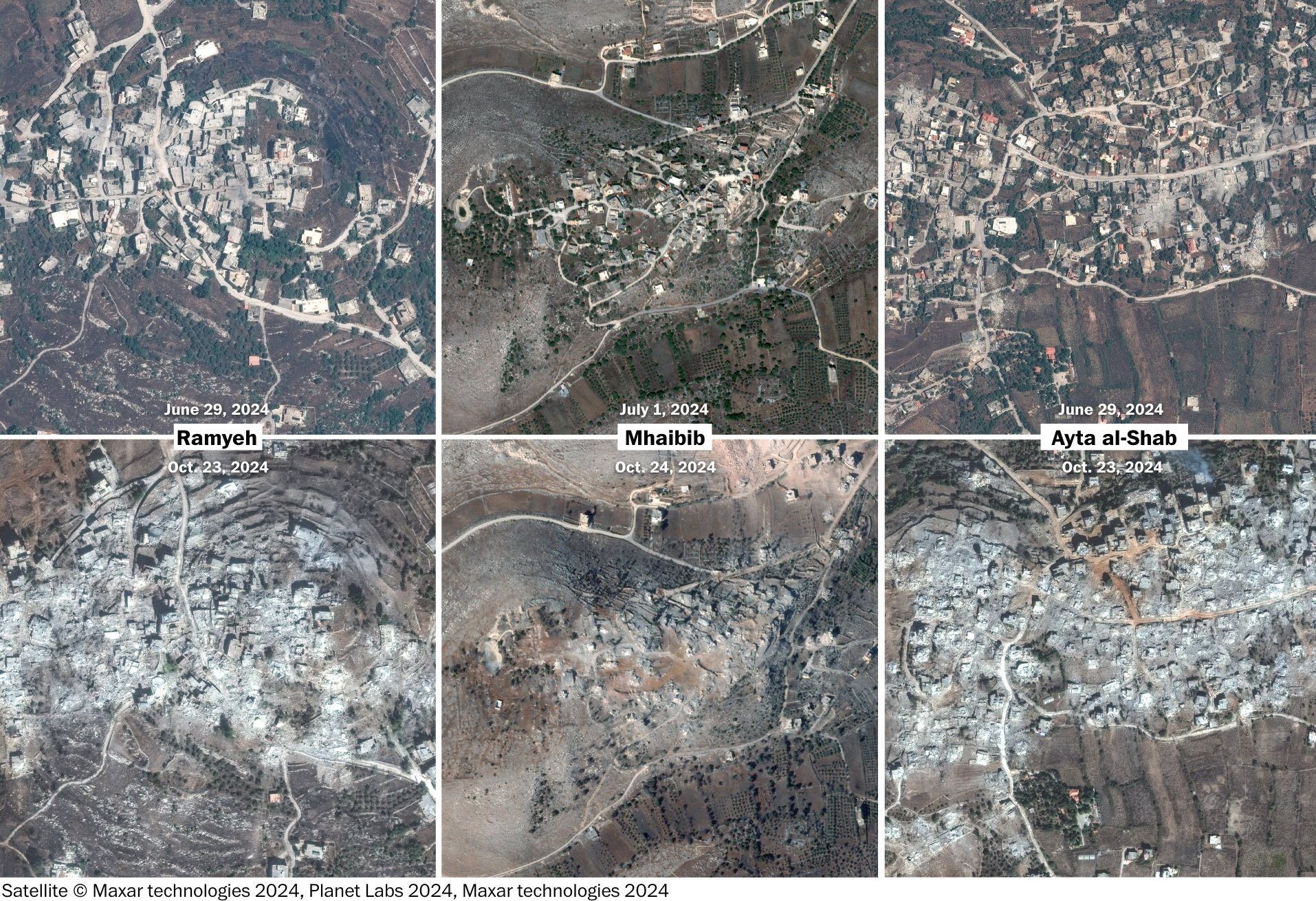
TikTok Genocide

An Israeli soldier shared footage of his unit's detonation of Matmoura village, which they completely annihilated.
Original Social Media Post
"He shared footage of his unit's detonation of Matmoura village, which they completely annihilated." - Source
Tags
Archivist Notes On This Video
The footage was shared by Dan Novikov, of Russian origin, served in the 601st Armored Engineer Battalion "Asaf".
Context
The IDF announced the completion of a major demolition operation in Matmoura, a southern Lebanese village near Israel's northern border. The village was identified as a Hezbollah stronghold and a staging ground for terror activities. The operation, conducted by the 5067th Engineering Battalion of the 646th Brigade, uncovered extensive weaponry and evidence of terror operations in almost every house, including underground bunkers equipped for long-term use by Hezbollah's elite Radwan forces.
Weapons seized included grenades, rocket launchers, night vision systems, and tactical gear, with some equipment traced to Russian origins. Hezbollah had fortified positions near the border, digging trenches and planting mines, intending to infiltrate Israel disguised as civilians for quick strikes.
Lt. Col. Nimrod Ziv, leading the operation, declared that the IDF would not allow threats to Israeli security, emphasizing the operation’s role in neutralizing Hezbollah’s capabilities and ensuring the safety of Israel's northern residents. The operation is part of the broader campaign to counter Hezbollah’s offensive activities along the border.
Event Notes
Systematic Israeli policy of urbicide in South Lebanon villagesOn November 5, 2024, Israel had already completely destroyed between 29 and 37 Lebanese border villages. These villages was razed by shelling or explosion, with the historical treasures that were there whose inhabitants are now refugees in their own country.
These 37 villages have been wiped out across a 120 km stretch from Naqoura to Shebaa. This systematic urbicide creating a no-life zone in South Lebanon.
The Israeli army has been booby-trapping and destroying entire neighborhoods in cities and towns in south Lebanon, Lebanon’s state-run National News Agency reported on November 5. Entire streets and neighborhoods in 37 towns have been wiped out and homes have been destroyed. “More than 40,000 residential units have been completely destroyed. This is happening in an area three kilometers deep (from the border) that extends from Naqoura to the outskirts of Khiam”
Reasons of this destruction campaign
Israel says it is targeting Hezbollah infrastructure near the frontier in a bid to push the Iran-backed group away from the border and allow for its residents to return to northern Israel.
However, local officials in Lebanon allege that Israel is pursuing a "systematic destruction" campaign.
Lebanon’s National News Agency and its Human Rights Commission have condemned Israel’s actions, with the Commission labeling the destruction in at least eight villages as a "war crime." These claims are supported by satellite images and footage, reportedly showing systematic demolitions by Israeli forces since the cross-border hostilities renewed in late 2023.
The demolitions clearing Israel’s ‘first belt’ in Lebanon. Satellite & video analysis shows damage in 30 villages within 3km of the border. At least 12 have had lines of buildings destroyed in controlled detonations. This contributes both to a scorched earth policy but also to a buffer zone for tactical purposes. However, the precedent of urbicide committed in Gaza, and the indiscriminate destruction of archaeological, religious or cultural treasures, suggests a logic of ethnic cleansing.
“There are two reasons Israel is using this detonations strategy,” said retired Lebanese armed forces general Akram Kamal Srawi. The first is to clear lines of sight for potential incursions deeper into Lebanon in an area where Hizbollah maintains the upper hand and has caused significant losses for Israel. The second is that Israel has adopted a scorched earth strategy in order to wage psychological warfare on Hizbollah’s base people by televising these detonations and weaken support for the group — which will never work,” he added


The detroyed villages (Ongoing documentation)
Mais al-Jabal :
After the blowing up of the village by Israeli army, around 70% of Mais al-Jabal is reported to be destroyed, with numerous detonations causing extensive structural damage across the village. Homes were reduced to dust, and large blasts occurred near a vacated hospital. Four elderly residents, aged between 85 and 90, are reportedly trapped in the village, awaiting rescue due to the ongoing instability and destruction.
The village’s mayor, Abdul-Monhem Choukair, has accused Israeli forces of conducting a campaign of "systematic destruction," describing the destruction as deliberate.
The White Phosphorus Tracker (@Phosphor_Abyad) have verified and geolocated 25 White Phosphorus attacks over Meis Al Jabal, over the past year, making it the village most impacted by Israel’s deployment of WP in South Lebanon.
Baalbek
#Minister_of_Culture Sends New Appeal to UNESCO Director-General Regarding Israeli Aggression on People, Heritage, and Historical Sites Subject: Urgent Appeal for the Protection of Lebanese Cultural Heritage Following Recent Destruction Near the Baalbek Site
"Dear Ms. Audrey Azoulay, I write to you today with profound sadness, anger, and concern on behalf of the Lebanese Republic, government, and people, following a serious attack on our esteemed cultural heritage this evening. The Israeli aggression targeted the historic “Manshiyah” building in Baalbek, dating back to the Ottoman era and located near the Baalbek Fortress, causing severe damage in the recent attacks. This building held centuries of history and culture, standing as a living testament to our shared cultural heritage. The loss of this unique landmark, adjacent to a UNESCO World Heritage Site, is an irreparable loss, not only for Lebanon but for all of humanity’s heritage. The Manshiyah was an architectural and historical icon, embodying a living heritage for generations. Its destruction under the current circumstances is a profound loss to us all. We once again call on UNESCO to intervene urgently to protect the remaining heritage sites in Baalbek and the entirety of Lebanese cultural heritage, which faces escalating threats today. While Lebanon remains committed to international agreements, it urgently needs UNESCO’s active intervention to preserve its historical legacy amid the current circumstances. We hope that this message will receive your attention and immediate intervention and that we may work together to protect our precious cultural landmarks. Sincerely, Mohammad Wissam Al-Mortada Minister of Culture"
People in Video
Dan NovikovThe details for each video come from social media. None of it has been verified.
